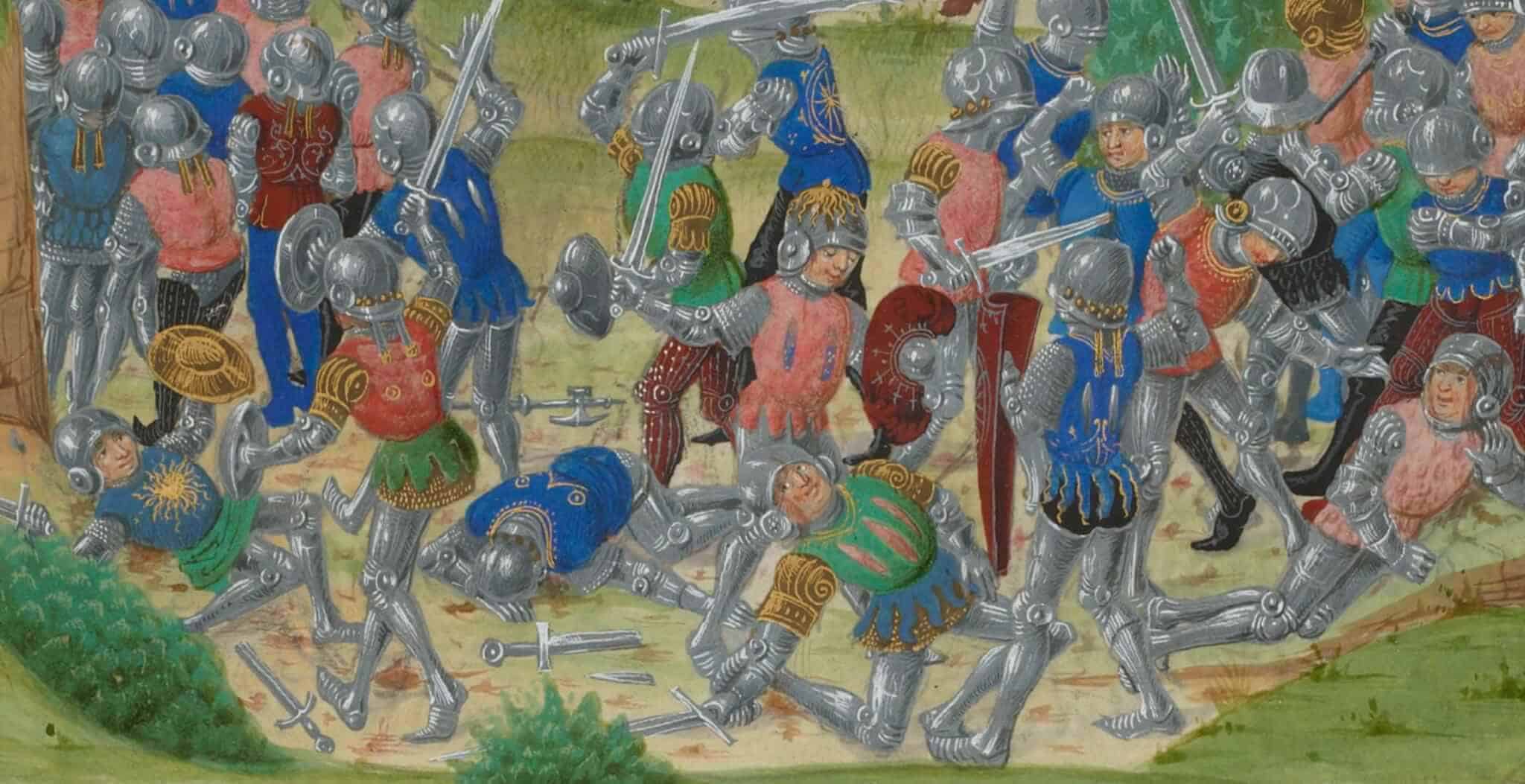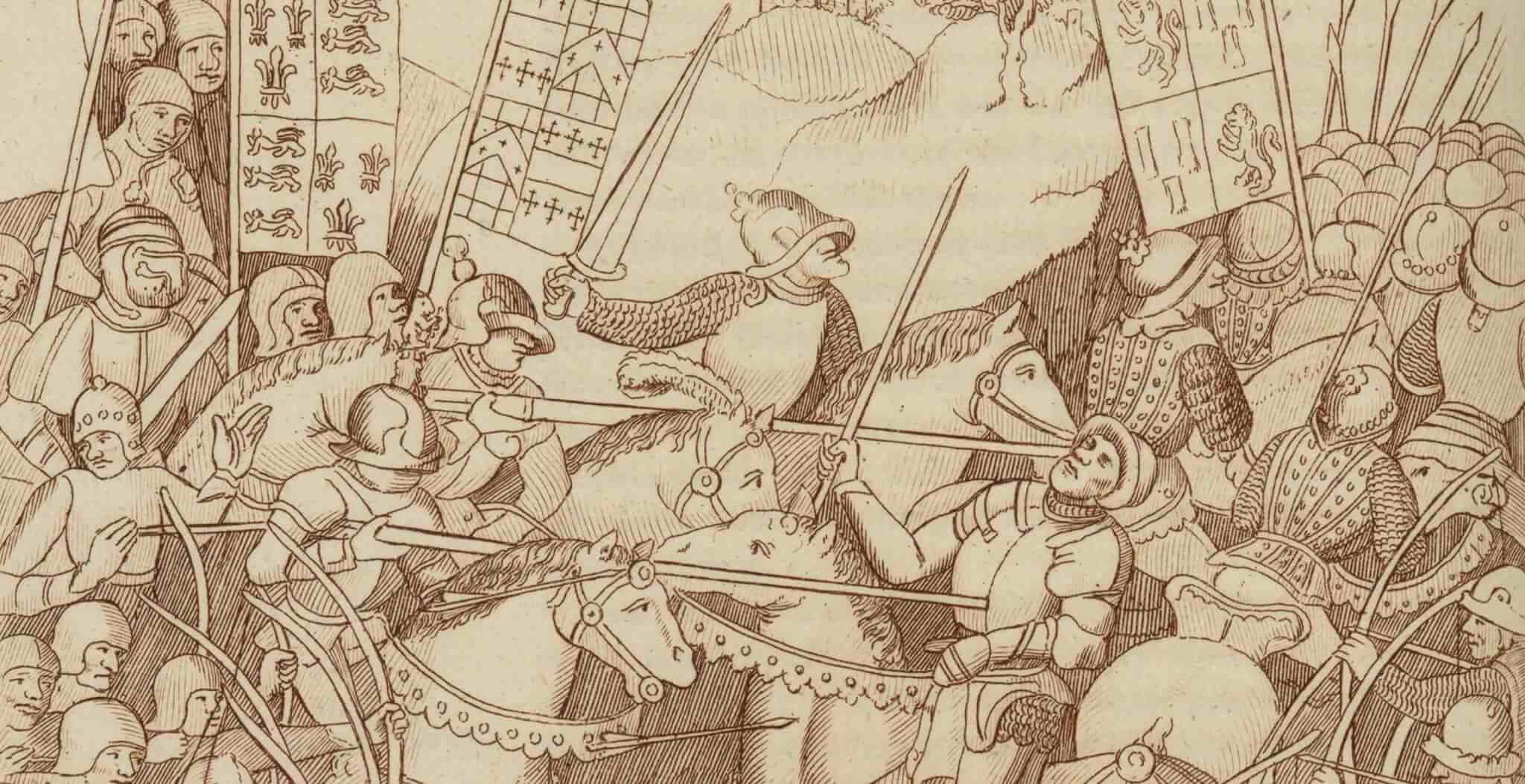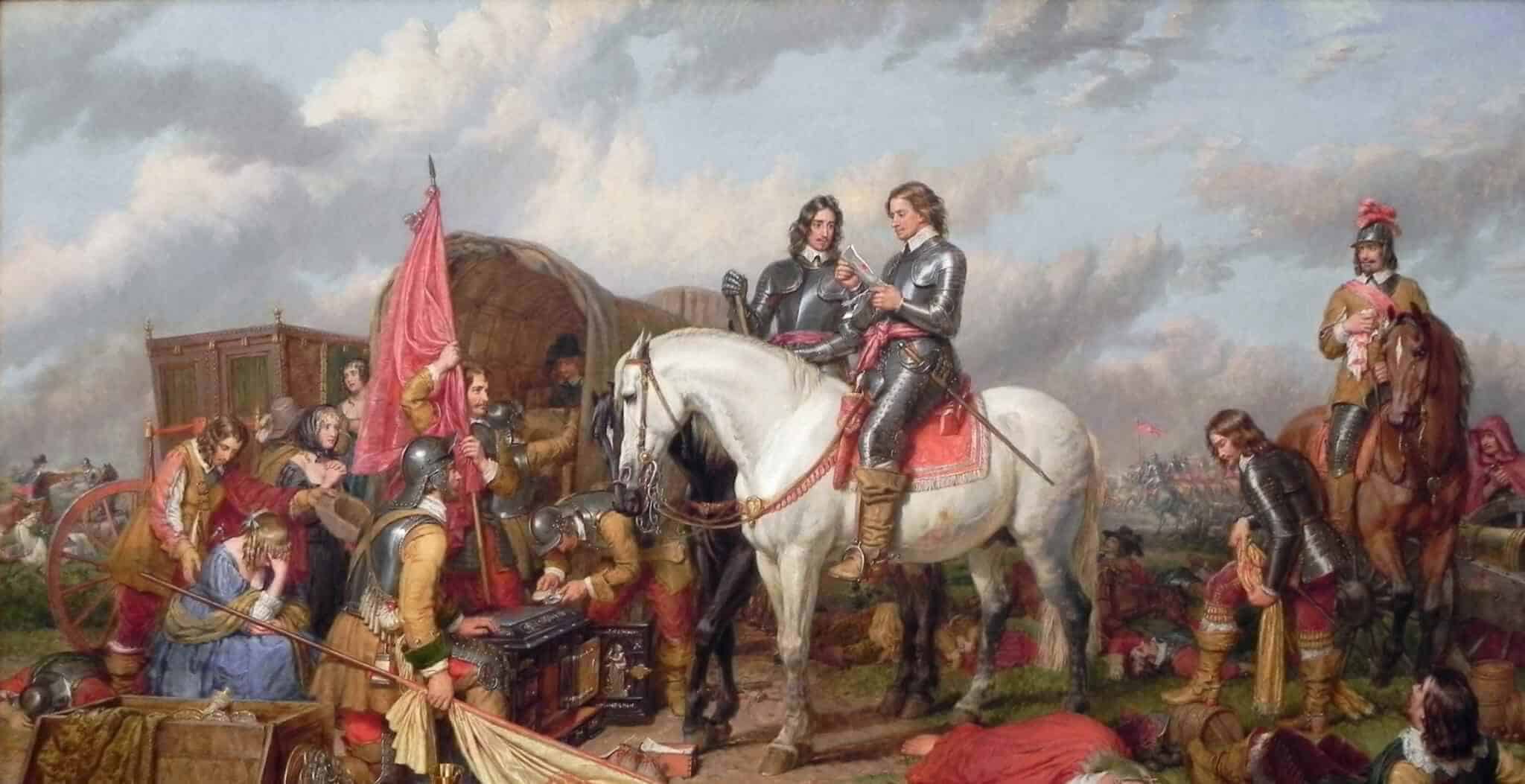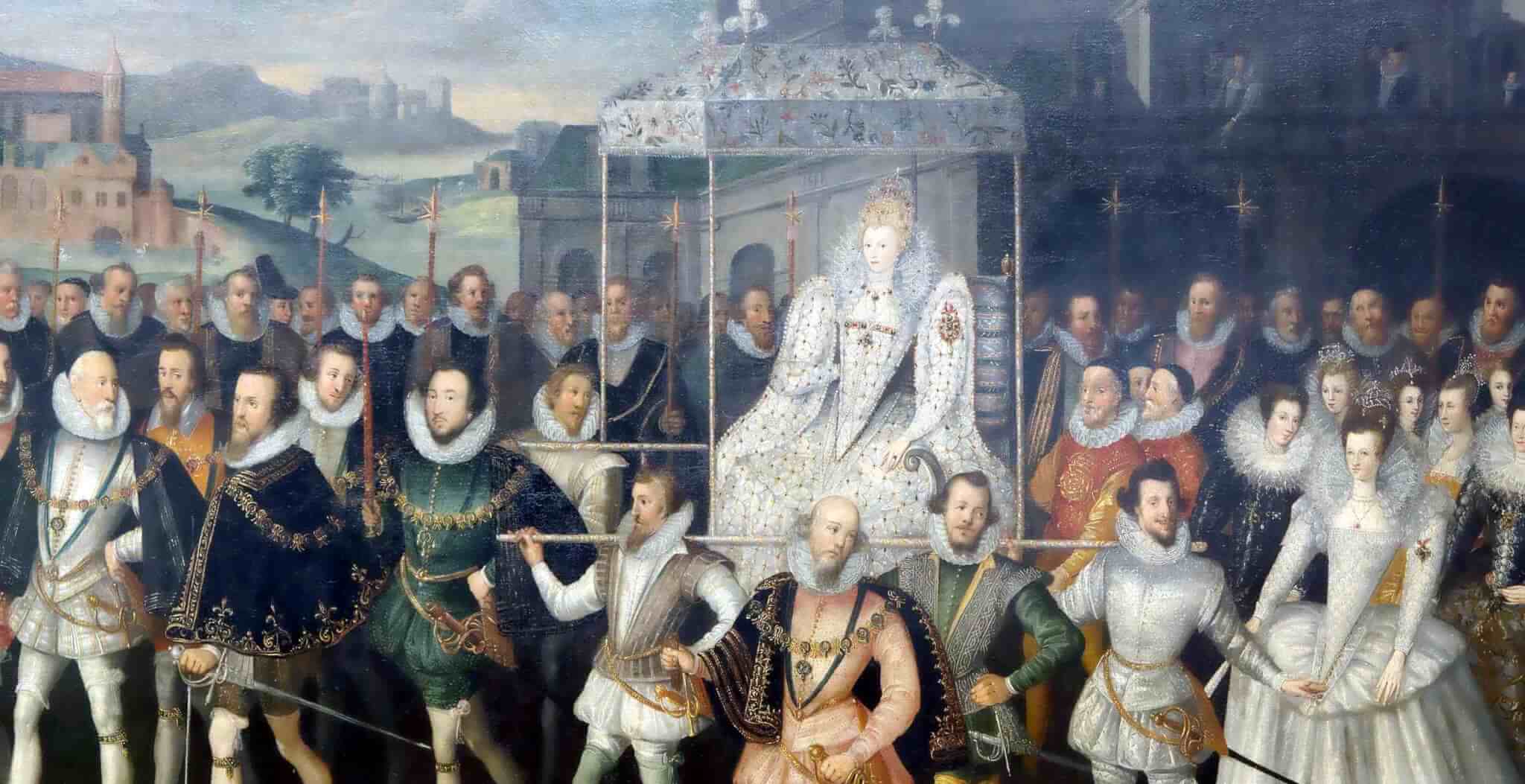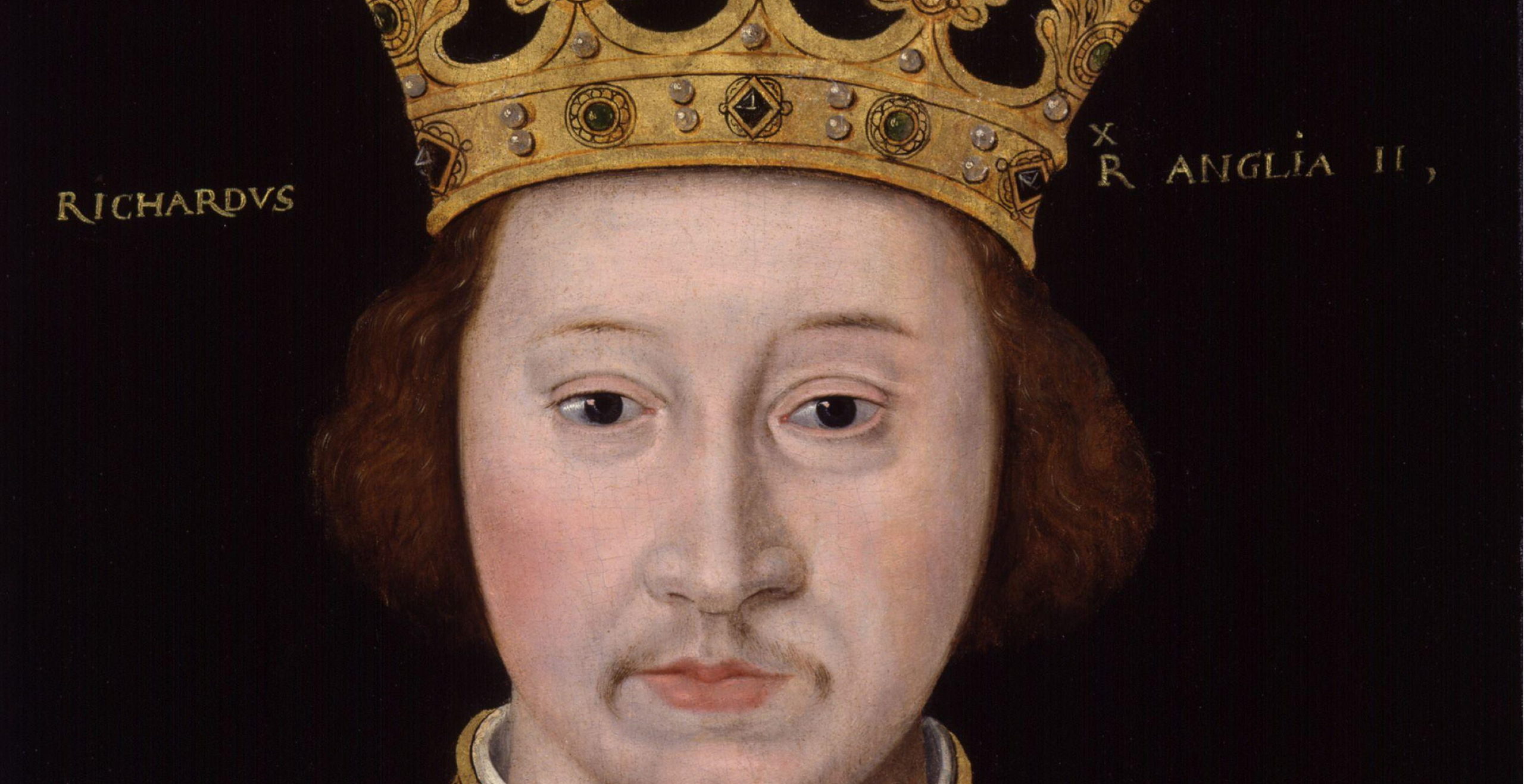Shortly after the troubled 14th century truce had expired between the kingdoms of England and Scotland, the Scots decided to take advantage of the power struggle that existed between the English King Richard II and his barons, by mounting major cross-border raids.
In the summer of 1388 James, Earl of Douglas led a force of some 6,000 men across the border in to England and on to Durham, burning and looting as they went.
The Earl of Northumberland sent his son Henry Hotspur Percy to intercept the marauding Scots on their way home to teach them a lesson. Hotspur was so called as he had somewhat of a fiery temperament.
During an initial skirmish, Hotspur and Douglas met in hand to hand combat and during the encounter that followed, Percy’s silk banner was captured by Douglas.
Heading back to the border with his ill-gotten gains, Douglas stopped one last time in order to lay siege to the castle at Otterburn.
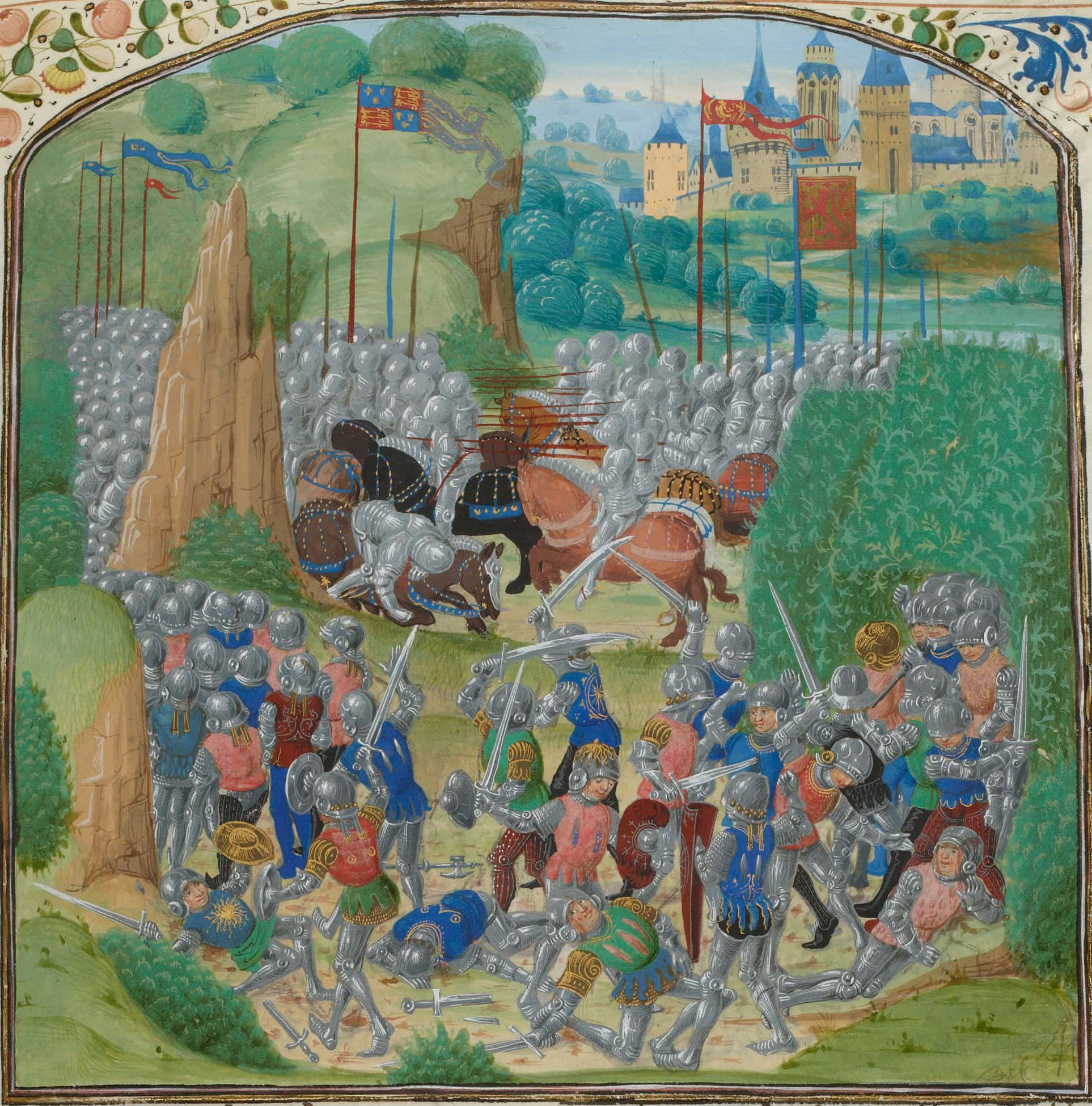
Two separate accounts exist of why Douglas decided to delay his return to Scotland. The first is that he was simply unaware that Percy was in such hot pursuit; the second and more chivalric version is that Douglas paused to allow Hotspur the chance to regain his colours. Either way, Percy’s arrival on the battlefield at Otterburn in the early evening took the Scots by surprise. The Scots, however, were swift to respond to the attack and quickly launched a counter-attack.
The fierce fighting continued through the night, but eventually the Scots secured a decisive victory. However the victory came at a cost, as Douglas was killed in the fighting and although Henry Percy and twenty-one other knights were captured, Hotspur’s reputation as a heroic leader had been secured.
Click here for a battlefield map.
Key Facts:
Date: 5th August 1388
War: Anglo-Scottish Wars
Location: Near Otterburn, Northumberland
Belligerents: England and Scotland
Victors: Scotland
Numbers: England around 8,000, Scotland around 6,000
Casualties: Unknown
Commanders: Henry Percy (England), James Douglas (Scotland)
Location:
